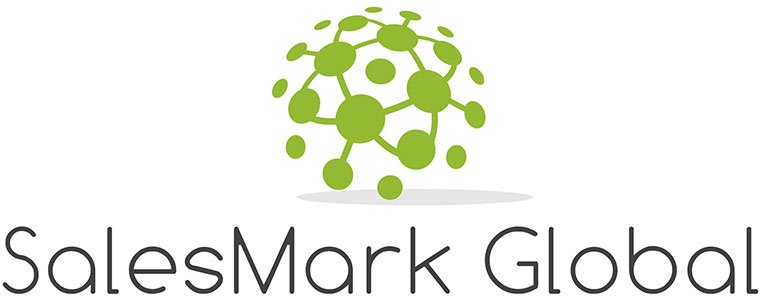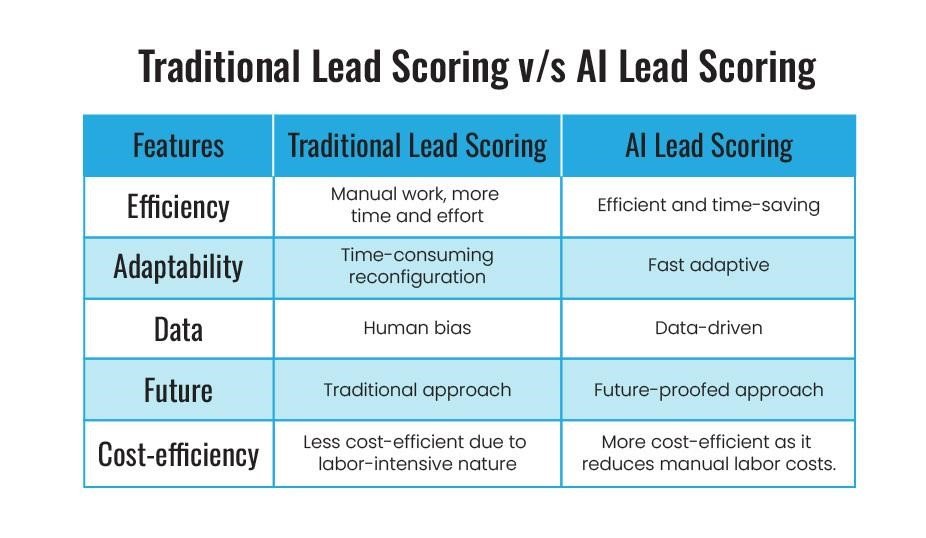Discover actionable tips to streamline your approach, drive conversions, and build stronger client relationships.
Table of Contents:
1. Defining Prospecting and Lead Generation in a B2B Context
2. Why B2B Businesses Need a Combined Approach for Success
3. Building Strategic Relationships
3.1 Identifying High-Value Prospects: Ideal Customer Profiles (ICPs) and Account-Based Targeting
3.2 Best Practices for Effective B2B Prospecting
4. B2B Lead Generation: Fueling Sustainable Growth
4.1 Comparing Inbound and Outbound Lead Generation for B2B
4.2 Key Lead Generation Channels: Content Marketing, Paid Media, Events, and More
5. Strategies for Effective B2B Prospecting and Lead Generation Integration
5.1 Aligning Marketing and Sales Teams: Ensuring Collaboration
5.2 Leveraging Account-Based Marketing (ABM) for Targeted Prospecting and Lead Generation
5.3 Using CRM, Marketing Automation, and Data Tools to Bridge Sales and Marketing
6. Overcoming Common Challenges in B2B Integration
6.1 Solving the Marketing-Sales Disconnect in B2B Companies
6.2 Managing Long B2B Sales Cycles and High Touchpoints
6.3 Tackling Data Management and Siloed Systems
7. B2B Case Studies: Companies Successfully Combining Prospecting and Lead Generation
7.1 Terminus: Using Account-Based Marketing (ABM) and Multi-Channel Engagement
7.2 HubSpot: Leveraging Inbound Marketing and Content Strategy for Lead Nurturing
7.3 Cisco: Integrating CRM Data and ABM for Targeted Sales Efforts
Conclusion
Sales and marketing executives experience higher pressures in creating enough high-quality leads while also creating essential linkages with prospective consumers. One of the main mistakes is the lack of clarity and distinction between prospecting and lead generation as two completely different processes that are in fact interdependent. Combining these features, with the help of mutual usage of these two methods, not only can businesses guarantee a constant flow of potential consumers, but they can also increase the factors, influencing their decision to purchase to the maximum. This article will illustrate how B2B companies can prospect and generate leads in a way that will yield the best results.
1. Defining Prospecting and Lead Generation in a B2B Context
In sales, prospecting and lead generation act as the pillars of creating a healthy sales funnel. Sales prospecting means the identification and development of leads for potential business, mainly through outbound methods such as cold calling, linkedin connection, or email marketing. The opposite strategy, known as lead generation, is the process of drawing in more clients using inbound tactics such as content marketing, webinars, and search engine optimization.
Each of these approaches is vital for achieving success, but it is advisable to implement them in combination. Whereas prospecting engages you to directly contact certain targeted and potentially lucrative accounts, lead generation brings the prospects to you by capturing their interest through informative or entertaining material. Implementing both of these strategies can lead to a smoother and more effective sales funnel that reaches out to a larger number of potential buyers and guides them through the buyer’s journey.
2. Why B2B Businesses Need a Combined Approach for Success
Therefore, in the context of the B2B market, where the decision-making process may involve several people or could take more time, it is crucial to combine prospecting and lead generation strategies. These strategies work hand-in-hand: prospecting means to go out in the market to find potential customers, while lead generation involves creating awareness in the market, which makes the customers prepare to be sold. These two methods can be integrated for the companies to be certain that their targeted audience is following every step of the funnel system, and at the same time, the responsibilities of outbound and inbound strategies for attracting the leads persist.
Integrated content marketing helps in the smooth transfer of prospective customers with greater accuracy to the sales team and provides uniform brand awareness to the prospective buyers across the different stages of their buying process. As a result, businesses can see an improvement in lead quality, conversion rates, and overall return on investment (ROI).
It is pertinent to note that prospecting and lead generation are best used collectively in the B2B context. Whereas prospecting enables one to come across potential high-value accounts and interact with them, lead generation on the other hand fosters these prospects, building rapport and moving them through the funnel. However, if both tactics are aligned, then they are even more beneficial in making a smooth funnel of the sales process.
This is one of the major reasons why prospecting and lead generation need to be integrated so that the sales team has a constant stream of qualified leads to work on. Lead generation can be effective for producing a large number of leads, but those leads will not be ready to buy. Prospecting comes in handy to fill this gap by identifying potential accounts, then taking time to court the accounts in an effort to make them sale-ready for the sales team.
3. Building Strategic Relationships
Prospecting is finding new clients that align with your ICP. In the B2B space, this entails targeting organizations or individuals in companies that might employ your products and services. The Importance of Prospecting Prospect or starve—it’s a simple correlation, but the reality is that without prospecting, you simply will not have the top-end demand filtering into your sales funnel for reps to work through.
Prospecting Differs From Lead Generation Unlike lead generation, which is largely based on piquing interest in your service or product (sometimes with bait), prospecting requires a proactive approach. This is going to include things like: Identifying target accounts Researching the companies Engaging in cold outreach Connecting with prospects any where they spend time (networking or social selling) One of the basic principles to keep in mind is that prospects are all about getting into touch with those having the correct fit and then looking at ways to build this association until they firm enough ground in order for them to engage further, which logically leads us towards prospecting.
If you truly want to be successful at prospecting, then it is necessary for you to know exactly who your target audience is—like what industry they belong in, the size of their company, and where decision-makers are usually located that can directly take advantage of what offerings. If you are selling enterprise software solutions, for instance, your prospective customers might be CIOs, IT directors, or procurement managers at large enterprises. It only means that you will sign up for teams with higher conversion potential since understanding the target audience results in qualified prospecting opportunities, which can visualize what kind of businesses convert better.
3.1 Identifying High-Value Prospects: Ideal Customer Profiles (ICPs) and Account-Based Targeting
The first step in targeting the valuable prospects is establishing an ideal customer profile (ICP). Imagine a buyer of your product or service; that is what your ICP is about. However, it does not simply stop there as it touches on structural aspects such as specific industry, company size, and more importantly, the firm’s pain points, goals, and purchase patterns.
ABM augments the prospecting of clients in the B2B context. According to Account-Based Marketing (ABM), B2B businesses identify accounts within a target market that would work best for them and focus their campaigns specifically on that account. This results in a more effective outcome with B2B sales, where the specifics of a client are valued more than the number of clients. Instead of a one-size-fits-all approach, ABM encourages you to concentrate on building relationships with a specific group of people who have the highest potential chances of becoming your client.
As an example, if your company’s ideal customer profile includes mid-market technology companies seeking cybersecurity services, account-based marketing would allow mid-market technology companies to reach out to such companies. Some of these may be in the form of personalized emails, carving out central email messages, or business networking via LinkedIn to corners of the main decision-makers.
3.2 Best Practices for Effective B2B Prospecting
The emphasis in B2B prospecting approaches should not be on standardized templates, as most B2B businesses target the gauging of prospects but rather markets in pursuing B2B opportunities. Outlined below are some basic recommended actionable steps for success in prospecting:
- Research first: It is important to prepare before trying to reach out to a potential client. Learn more about the company in terms of their issues and troubles, which will allow for appropriate communication.
- Be Channel Agnostic: Do not stick to one communication channel. Instead, employ various approaches and engage through multiple channels such as emails, LinkedIn, phone calls, and outreach videos.
- vPromote your brand through social activities: Applications like LinkedIn provide avenues for meeting prospects by using content, comments, and DMs. Engage in social selling in order to develop relationships and position yourself as an opinion leader in the niche.
- Get the Prospects Name: Targets are unlikely to respond to random broadcasts. Develop and adapt as focused a marketing message as possible for each and every business target and the challenges they currently have.
Be persistent, but not overly so. Finding prospects can be incredibly frustrating. Nevertheless, even after the first attempt, it isn’t the end of the road. Make regular contact offers, but do not create annoyance. In every interaction, such a strategy aims at providing further knowledge to the prospect without presenting the same information twice.
4. B2B Lead Generation: Fueling Sustainable Growth
In the understanding of B2B lead generation processes, the two most important distinctions should be made. The first distinction should be defined as prospecting and the second one as lead generation. While prospecting means going out to find customers, lead generation means rendering services to attract customers to your business. Speaking of B2B lead generation, the primary aim is to promote interest regarding your product or the services you offer through presentations and other materials. Such materials that need to be prepared are white papers, case studies, or webinars that will be useful for your potential customers.
The Business Model Canvas shows that lead generation for many companies happens at the top of the funnel, with leads that will not be buying in the near future but who are leading interest in your brand and generally what you offer. With time, these leads are warmed up through several marketing techniques; for instance, email marketing, remarketing, or even sending targeted content, and once they are ready, a direct call to action is issued.
4.1 Comparing Inbound and Outbound Lead Generation for B2B
B2B lead generation can be divided into two main types: inbound and outbound.
- Inbound Lead Generation: Covering some of the inbound marketing strategies for lead generation, the main strategy is mostly attributed to creating relevant content aimed at potential customers. Some of this could include posts on the blog, a social media post, white papers, case studies, video webinars, among others. The essence of doing so is to get the leads to your business website and landing locations where they are more likely to convert into a lead. Given that the prospect has already interacted with your material, inbound lead generation naturally results in warmer leads.
- Outbound Lead Generation: Outbound lead generation refers to the process of searching and contacting potential clients through channels such as cold emailing, telemarketing, or sending mail directly to the person’s place of business. Outbound strategies are commonly used to contact prospects for the first time who have not interacted with your brand before. While it is true that outbound leads need to be nurtured more, this strategy gives you the advantage of going after a few select accounts that may be very valuable to you.
There are advantages to both strategies, and the most effective B2B businesses employ both. Inbound types of strategies are useful in raising brand awareness and capturing the attention of prospects who are actively looking for remedies, while outbound strategies come in to help during account targeting.
4.2 Key Lead Generation Channels: Content Marketing, Paid Media, Events, and More
B2B lead generation propagates through multifaceted channels that are useful in sourcing and nurturing viable leads:
- Content Marketing: This involves providing valuable information on blogs, whitepapers, and case studies that aim at educating the prospects on industry problem areas or potential solutions in the market.
- Paid Media: This is the use of paid ads on platforms like Google Ads, LinkedIn, or websites within an industry to promote content or a website.
- Webinars and Events: This is where one hosts a webinar or goes to an industry event to present and meet potential customers in real time.
- SEO and PPC: Optimizing your website and using pay-per-click (PPC) advertising to drive targeted traffic to your landing pages.
5. Strategies for Effective B2B Prospecting and Lead Generation Integration
5.1 Aligning Marketing and Sales Teams: Ensuring Collaboration
It is often seen that there is a noticeable gap between sales and marketing in many organizations. Marketing may generate leads that sales don’t feel are well-qualified, while sales teams may reach out to prospects that marketing hasn’t nurtured enough. The key to overcoming this is alignment and collaboration. Here are ways to foster that:
- Shared Goals and KPIs: Both teams should have aligned objectives, like specific lead volume and conversion rate targets. Using shared metrics can help align priorities.
- Regular Communication: Schedule regular sync meetings to review lead quality, address prospecting challenges, and adjust tactics as needed.
- Lead Scoring: Implement a lead scoring system to qualify leads based on engagement, fit, and potential value. This helps the sales team focus on high-potential accounts first.
5.2 Leveraging Account-Based Marketing (ABM) for Targeted Prospecting and Lead Generation
It is particularly used in the B2B setting, where organizations aim to sell their products to specific key customer accounts. ABM is more accurate in its targeting and lead generation than traditional marketing since it targets opted-in accounts with the aim of meeting their specific needs. ABM strategies include:
- Personalized Campaigns: Create content and communicate according to the needs and objectives of each target account.
- Sales and Marketing Collaboration: Ideally, both teams should collaborate on developing strategies specifically for the specific accounts, together with the insights and approaches to maintain good relations and effectively work with these prospects.
- Multi-Channel Outreach: Expand the outreach of the accounts receiving messages and engage them via more channels, like LinkedIn, email, or direct mail.
5.3 Using CRM, Marketing Automation, and Data Tools to Bridge Sales and Marketing
There is a strong potential for prospecting and lead generation to connect well with technology. Customer Relationship Management (CRM) systems, marketing automation platforms, and data tools streamline communication and provide valuable insights, helping B2B teams integrate their efforts effectively.
CRM Systems: The sales teams can monitor the communication with prospects, find out who is more likely to buy a certain product or service, and share data between the departments, including marketing.
6. Overcoming Common Challenges in B2B Integration
6.1 Solving the Marketing-Sales Disconnect in B2B Companies
A key challenge in B2B integration is the disconnect between marketing and sales teams. Bridging this gap requires a shift in mindset, with both teams viewing each other as allies rather than separate entities. Here are steps to achieve this:
Unified Communication: Regular updates on lead quality, conversion, and feedback loops ensure that marketing can fine-tune its efforts to support sales needs better.
Training and Workshops: Bring sales and marketing together for cross-training sessions so each team understands the other’s perspective.
Cross-Functional KPIs: Evaluate teams based on metrics that consider both prospecting and nurturing stages to incentivize shared goals.
6.2 Managing Long B2B Sales Cycles and High Touchpoints
In B2B, sales cycles are often lengthy and involve multiple decision-makers. To manage this, businesses must ensure they stay top-of-mind for leads throughout the journey, maintaining consistent and strategic communication. Strategies include:
Lead Nurturing Campaigns: Drip campaigns, retargeting ads, and periodic check-ins keep your brand in front of leads without overwhelming them.
Engagement Tracking: Monitor lead activity, including content downloads and webinar attendance, to time your follow-ups for maximum impact.
Mapping Content to Buying Stages: Deliver the right type of content at each stage of the buyer’s journey to maintain engagement and move leads closer to conversion.
6.3 Tackling Data Management and Siloed Systems
Siloed data systems create barriers for effective integration. To overcome this, invest in a unified data infrastructure where both sales and marketing can access shared insights and collaborate on lead management:
Centralized Data Platform: Integrate data from various sources into a centralized platform accessible to both sales and marketing.
Data Cleansing: Regularly update and clean data to avoid targeting outdated contacts, ensuring lead quality remains high.
AI and Predictive Analytics: Use AI-driven tools to predict buyer intent and personalize your approach based on data insights, enabling better lead prioritization and engagement.
7. B2B Case Studies: Companies Successfully Combining Prospecting and Lead Generation
To illustrate the power of integrated prospecting and lead generation, here are some real-world examples of B2B companies that have successfully combined both strategies for growth.
7.1 Terminus: Using Account-Based Marketing (ABM) and Multi-Channel Engagement
Background:
About Terminus: Terminus, an ABM software company, sought to attract large B2B accounts by personalizing marketing campaigns while adopting a multi-channel strategy.
Strategy:
With its ABM platform, Terminus focused and accurately targeted key accounts so that prospects were categorized and campaigns could be geared towards such demographics.
These prospects were maintained using both online and offline modes of communication, such as emails, social media, advertisements, and postcards.
Results:
As a result of undertaking an integrated ABM approach, Terminus was able to reduce the sales cycles and sell directly to enterprises, 30% faster than normally achievable. Overall, their campaigns across multiple channels were 20% more effective, and their sales teams received better-quality leads to chase.
7.2 HubSpot: Leveraging Inbound Marketing and Content Strategy for Lead Nurturing
Background:
HubSpot, an inbound marketing company from Cambridge, Massachusetts, is looking for a solution to generate a huge number of quality leads for the enterprise’s CRM and marketing tools. They were able to accomplish this through the development of an effective content strategy that tackled the pain areas of the buyer’s journey.
Strategy:
HubSpot’s marketing team produced blogs, guides, and webinars that provided additional informational value to prospects, which they aimed specifically at small and medium businesses seeking to enhance their marketing. This content generated potential leads on its own, while lead scoring and nurturing tiers in HubSpot’s CRM guaranteed that sales teams got engaged and knowledgeable leads exclusively.
Results:
Hubspot’s inbound marketing strategy shortens the sales cycle and decreases the cost per acquired lead; the inbound generated leads are even higher in the sales conversion rate of 11.67% than the outbound method. Implementing this content-centric outreach strategy led to a 4X year-over-year increase in the number of high-quality leads.
7.3 Cisco: Integrating CRM Data and ABM for Targeted Sales Efforts
Background:
Cisco, a global technology and networking firm, was looking for a better way to reach out to big enterprise buyers that had more sophisticated network requirements.
Strategy:
Cisco integrated data from its CRM with an ABM strategy to deliver account-specific content and messaging. The marketing team crafted personalized campaigns and used predictive analytics to score leads and prioritize accounts that showed high buying intent. They also engaged decision-makers in target companies through personalized webinars and tailored digital events.
Results:
Cisco’s ABM approach led to a 40% increase in engagement with target accounts and shortened the sales cycle by 20%. The high level of personalization and tailored messaging helped Cisco build stronger relationships with key prospects, ultimately leading to a notable increase in deal size and customer retention.
Conclusion
Combining prospecting and lead generation provides a holistic approach to building a sustainable and high-performing sales pipeline in B2B settings. When marketing and sales teams work collaboratively, leveraging shared insights and aligning on account-based strategies, they can maximize engagement, enhance lead quality, and improve conversion rates. The synergy between these functions enables businesses to drive consistent growth, even in competitive markets.
As we’ve explored, aligning these functions can have a transformative effect on B2B organizations. By focusing on data-driven strategies, integrated technologies, and continuous measurement, businesses can capitalize on their prospecting and lead generation efforts, delivering a seamless and engaging experience for prospects at every stage of their journey.
Visit Our SalesMarkBlog Section to Uncover the Sales Strategies That Ignite Your Sales Journey!











